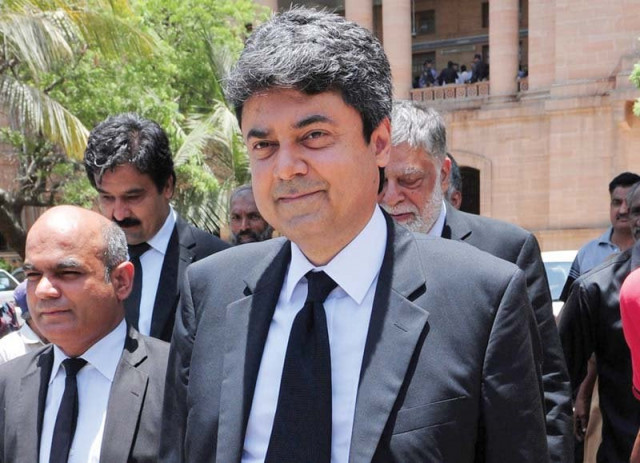People, not govt, can end death penalty: law minister
Farogh Naseem says capital punishment is awarded only under exceptional circumstances

Federal Minister for Law Dr Farogh Naseem has said it is up to the people of Pakistan and not the government to decide whether the capital punishment should be abolished or not.
“In Pakistan, the capital punishment is an exception and is awarded in very rare cases. No one has been executed in the country in the ongoing year (2020),” Dr Naseem said on Friday while speaking at the live screening of an art performance on the eve of the “18th World Day Against the Death Penalty”.
The screening – hosted by a delegation of the European Union (EU) and produced by the Justice Project Pakistan – was titled “Before The Sun Comes Up”. It was attended by foreign dignitaries, including the EU countries’ ambassadors, civil society organisations and government officials.
Dr Farogh Naseem, who was the chief guest at the event, gave full credit to the superior judiciary, which, according to him, applied different techniques in death penalty cases. Due to these techniques, confirmation of death penalty is not easy, he added.
He said the Supreme Court has evolved a jurisprudence which has decreased the number of death sentences. However, he said, it is up to the people of Pakistan – not the government – to decide about abolishment of the death penalty.
He also spoke with reference to award of capital punishment to allegedly deranged prisoners and said the review petitions of the convicts are pending in the apex court.
Earlier in her welcoming address EU Ambassador to Pakistan Androulla Kaminara said currently 4,225 people are on the death row in Pakistan, which is 15 per cent of the world’s death row population.
She said the EU and its member states formally oppose death penalty at all time and under all circumstances as the death penalty is contrary to the right to life. However, she admitted that numbers of execution have drastically reduced in the last couple of years.
"The call for the death penalty might come from an impulse in reaction to a horrific crime. But as a society, we need to reflect deeper on what justice really means and what needs to be done for such crimes not to happen again.”
She said the EU holds a principled position against the death penalty in all circumstances and for all cases. It considers capital punishment to be inhuman, degrading and unnecessary.
“As a matter of fact, there is no valid scientific evidence to support that the death penalty deters crime more effectively than other punishments. Instead, it is the certainty of being caught and punished that serves as a deterrent and of course actions to prevent such crimes from happening in the first place.”
She said under its international commitments, including the UN International Covenant on Civil and Political Rights (ICCPR), Pakistan needs to limit the death penalty to the “most serious crimes; to allow for clemency petitions and to provide adequate protection to juvenile offenders and the mentally ill.
“This is one of the conventions linked to the GSP+ export regime offered to Pakistan,” she added.
Pakistan is one of the countries with the highest numbers of executions in the world. Since the de-facto moratorium on the death penalty was lifted in 2015, the country has executed 516 individuals.



















COMMENTS
Comments are moderated and generally will be posted if they are on-topic and not abusive.
For more information, please see our Comments FAQ